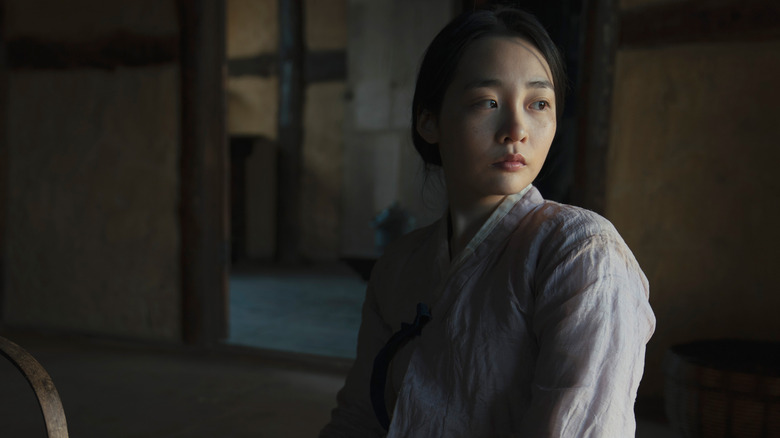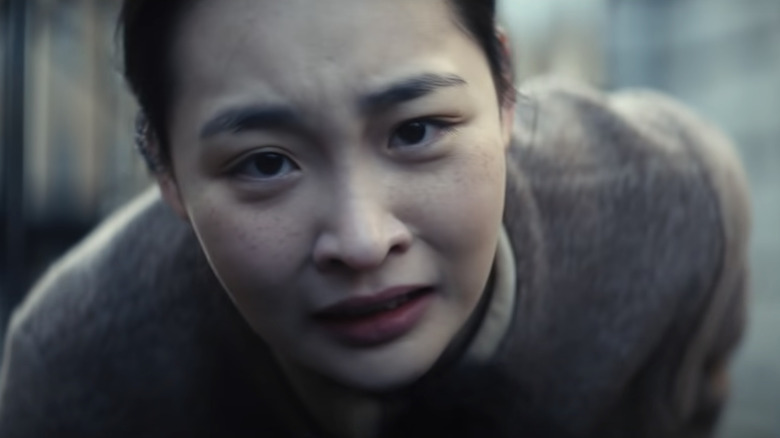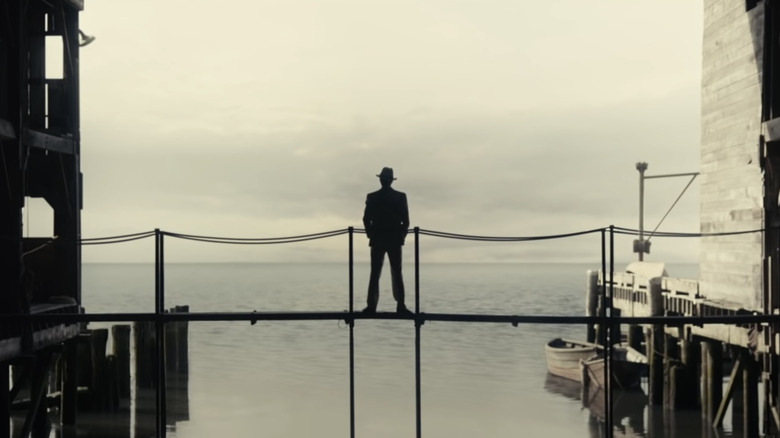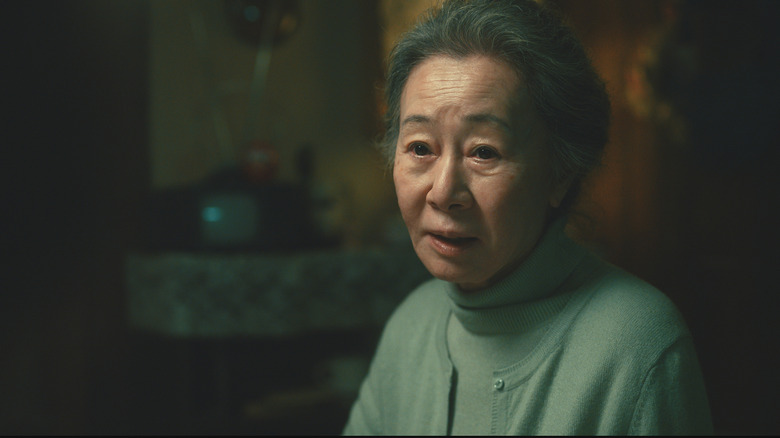Pachinko Showrunner Soo Hugh On Adapting A Beloved Novel And Exploring A Generational Divide [Interview]
Adapting the beloved Min Jin Lee novel "Pachinko" for television came with a certain amount of pressure. The historical epic follows a single Korean family across generations as they leave their homeland and immigrate to Japan in search of opportunities to survive and thrive. Lee's extraordinary novel quickly became a New York Times bestseller, in addition to winning the Medici Book Club Prize and other prestigious awards. Needless to say, the story was warmly received, especially by those who see themselves in the resilient immigrant tale.
Bringing the story to the small screen was a complex task, but one Soo Hugh ("The Terror," "The Killing") was determined to tackle. As she says herself, "[not] everything needs to be adapted for TV and film," but in the case of "Pachinko," she has something more to say through the story. With Hugh's vision and Lee's words paving the way, the result is a breathtaking series. In a conversation with /Film, Hugh discusses the challenges of adaptation, the existential questions that plague the characters of "Pachinko," and the joyous opening sequence that kicks off each episode.
This interview has been lightly edited for clarity and brevity.
'I wanted to tell the story about how the two generations clash and how they merge'
What was behind the decision to tell this story through flash-forwards and flashbacks instead of chronologically?
First of all, I don't think of them as flashbacks and flash-forwards. I know that's being technical, but once I realized, "Why am I telling this story? What do I want to say through this adaptation?" –and I love adaptations, I love the challenge of them — but if I told this story linearly, I was worried that it was going to feel like "Masterpiece Theatre." That it was going to feel removed from the experience. I wanted to tell the story about how the two generations clash and how they merge, and the only way to do that is to bring the different time periods together. That was really exciting to me to be able to do that.
Can you talk more about the challenge of adaptations — especially when it comes to adapting something that is very precious and very personal for a lot of people who read it?
I mean, the book is extraordinary. When you read a book for adaptation, you ask yourself, "Why?" I don't think everything needs to be adapted for TV and film. The book is there, read it. The only reason to adapt something for TV and film is if you think that you have something to say through it. Until you are convinced you do, I don't understand why you need to do an adaptation. But for this show, because it did remind me so much of my own family, right? Because it reminded me so much of what happened to Korea and it made me really investigate more into that history, I think this show can do something else.
Was there ever a version that fit the entire story into one season?
I think that was impossible.
'I want people to celebrate that these people survived, that they endured'
That also gives you a lot of space to expand. How do you choose which parts or even which characters to expand on? Like when it came to giving Hansu more time for a backstory, how do you make those decisions?
We did it in the writers' room. We have this amazing collective group of writers and we try to circuit our brains together. And when you find that we're all interested in the same questions, then that's something to explore, right? You end up breaking more story than you use. If I think about all the stories that we did in the writers' room, it's probably enough to fill 20 scripts for the first season. But it's very important to me that the pacing of the show be very rigorous and tight, that nothing feels like excess fat, that we're telling this story with as little indulgence as possible. And so, that came to eight episodes, including the departure episode for Hansu.
What questions was that episode answering for you?
He's such an intriguing character, right? And the big question is, how? How did he become this way? What happened in his life that made him build that armor? And then, I did not know about the Kanto earthquake. It was through my research for this show that I learned about it and what happened to the Koreans afterwards. That was a giant light bulb. Then all of a sudden, I saw Hansu there.
A little bit of a shift, but I've been really obsessed with the opening sequence for the show.
Yes. [Laughs] Thank you.
I'd love to hear about the conception for that, how you chose the song and what that sequence starting every episode is suppose to capture for us.
I write title sequences into my scripts. I like that, because I like title sequences. Originally in the script, it was a different song — it was a Rolling Stone song, [but] the rights didn't work out. So when we shot the title sequence in Vancouver, we didn't know what song it was going to be. I played different songs for different actors and it was probably two of my favorite days of shooting. It was so much fun. The thing I said about this title sequence, working with Elastic, our title company, I said, "I want one word to be pasted in your brains and that is the word exuberance. This title sequence has to feel exuberant." I want people to celebrate that these people survived, that they endured, and I think we did it.
'The sacrifices of one generation, I want to see that in the next generation. I want to see how it burdens them, how it frees them'
So there's that generational clash you mentioned, and the characters are experiencing it especially as we move back and forth in time with Sunja and Solomon.
When you think about Sunja as she's growing up — and this show follows two coming-of-ages, right? It's Sunja's coming of age and Solomon's coming of age. But they're both working with very vastly different tool boxes. For Sunja, the question of survival is about "How am I going to feed my family? How do I put a roof over my head? How do I maintain my dignity in a hostile world that doesn't want me here?"
Now, Solomon doesn't have those stakes. His stakes are different — they're more existential, in some ways smaller. Really, his question is, "Who am I? How many masks do I need to put on to survive in this world?" And by juxtaposing their coming of age [stories] and by pitting these questions together, I think we get a lot of dynamic tension. I just think the sacrifices of one generation, I want to see that in the next generation. I want to see how it burdens them, how it frees them, all these big themes. I thought the crosscutting of time periods would allow us to investigate that more thoroughly.
And there is that quote, that conversation that happens with Solomon of, "Is this a burden and is that the point?" Is that how you were thinking about this story?
It's a question that ... I have daughters and I ask myself, how much am I burdening my own children with my hopes and dreams for them? I think they're universal questions.
The first three episodes of Pachinko are now available to stream on Apple TV+, with new episodes debuting weekly on Fridays.



